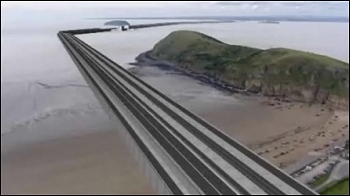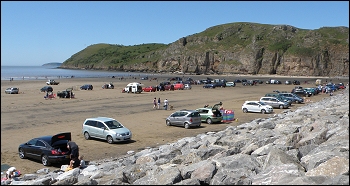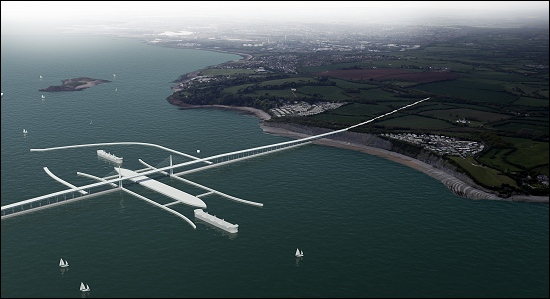The possibility of a Severn Barrage being built between Wales and Brean, near Burnham-On-Sea, took a major step forward this week with the announcement that five major global companies have been signed up to work on the £25bn project.
Hafren Power, the consortium behind proposals to build the 11-mile power-generating barrage, announced details of the five firms working with it which cover engineering, construction, project management and logistics.
 The project could create an estimated 50,000 jobs and generate around 5% of the electricity the UK needs if it gets the go-ahead – but there remain deep concerns by environmental and tourism groups plus local residents.
The project could create an estimated 50,000 jobs and generate around 5% of the electricity the UK needs if it gets the go-ahead – but there remain deep concerns by environmental and tourism groups plus local residents.
Earlier this year, the Government indicated it wanted to see a more substantial business case before deciding whether to back the idea of a barrage, which would be funded entirely from private sources.
The five firms – Arup, Bechtel, DHL, Mott MacDonald and URS – are currently assessing what is needed to manage the approvals and work for the nine-year build of the project.
Hafren Power Chief Executive Tony Pryor said this week: “Government has an open mind on our proposal and we are working hard to provide further details of construction, environmental and business impacts and mitigation.”
“These companies have successful track records in delivering large infrastructure projects and are bringing considerable expertise and momentum to the process.”
 He added: “As part of the energy mix, tidal power is greatly under-utilised. As a sustainable energy source the Severn estuary barrage will help the UK meet its renewable energy requirements. The engineering could also become the standard for schemes elsewhere in the world.”
He added: “As part of the energy mix, tidal power is greatly under-utilised. As a sustainable energy source the Severn estuary barrage will help the UK meet its renewable energy requirements. The engineering could also become the standard for schemes elsewhere in the world.”
Government approval is needed for the proposal, together with an agreement to support the electricity price in the first 30 years.
Environmental groups are opposed to the plan and say a barrage would damage wildlife in and around the Severn estuary.
Friends of the Earth director Gareth Clubb said this week: “Regardless of how big the companies involved are, the sums just don’t add up. You can have the biggest companies in the world working on it but the economics of the project don’t work so I don’t see it being given the go-ahead.”







